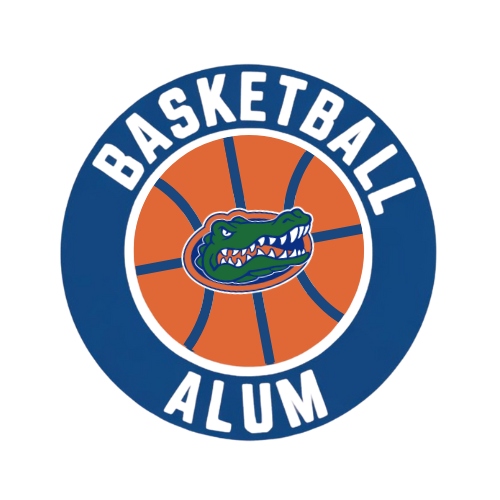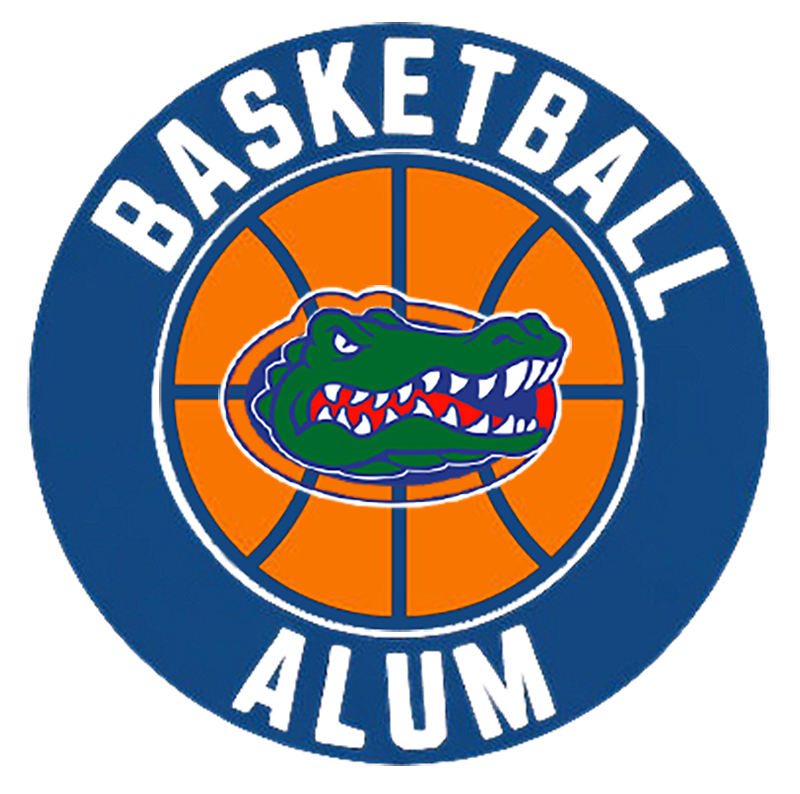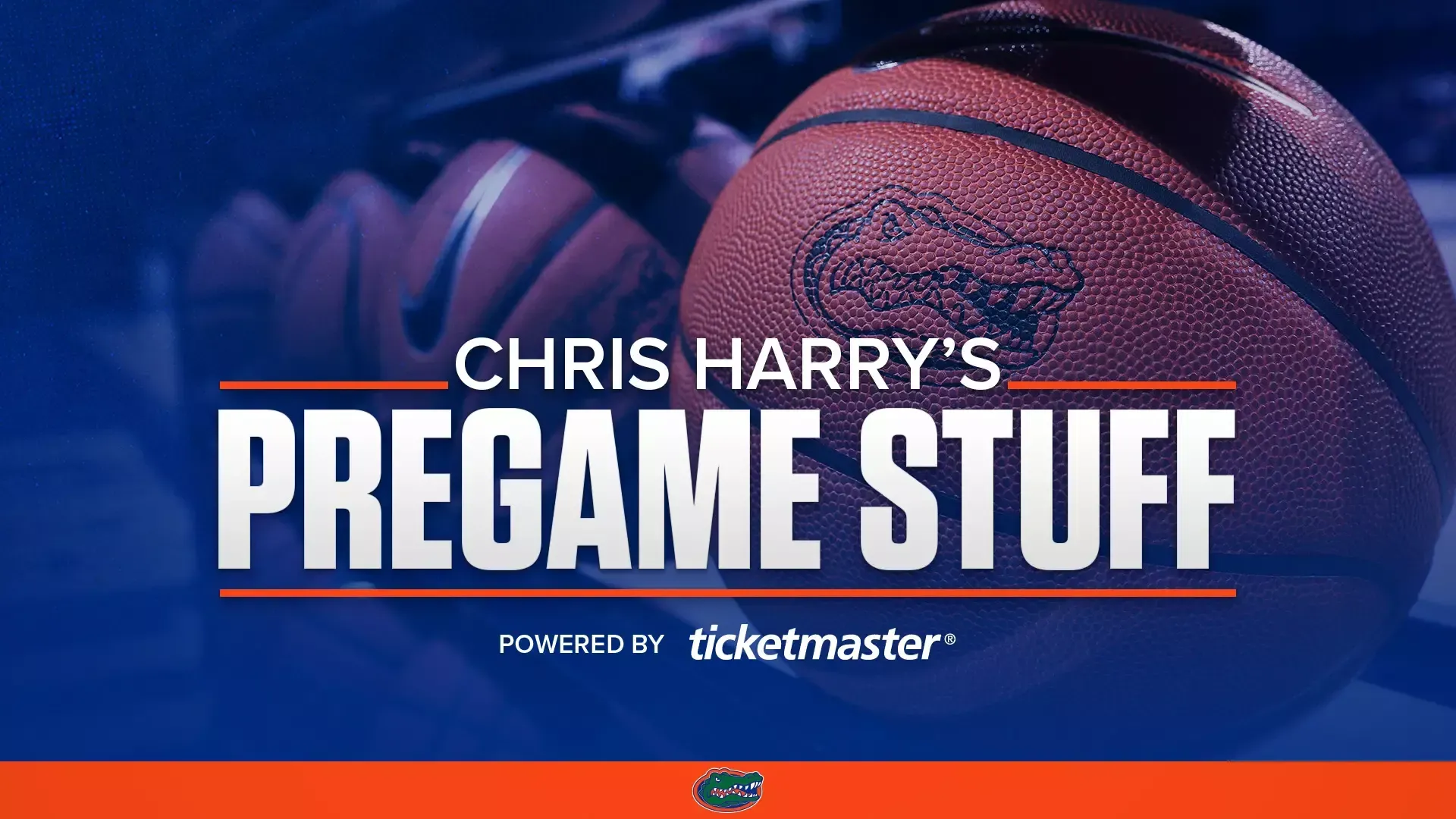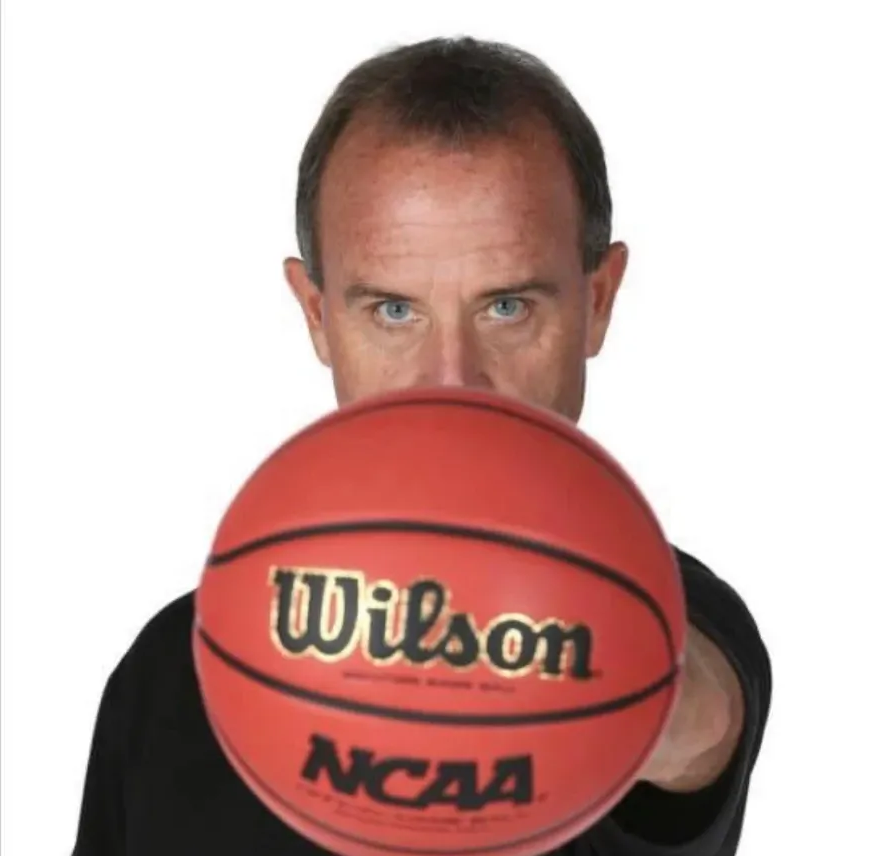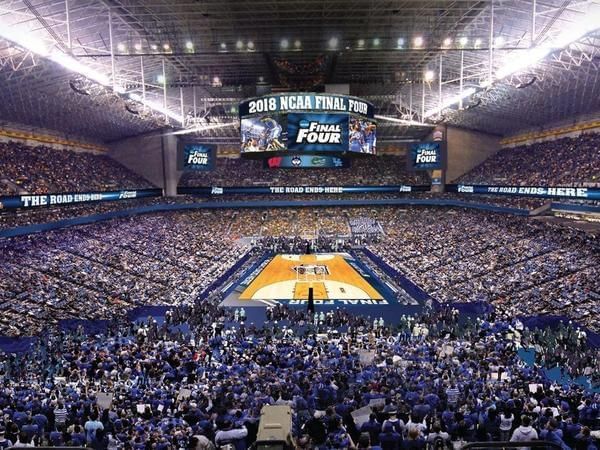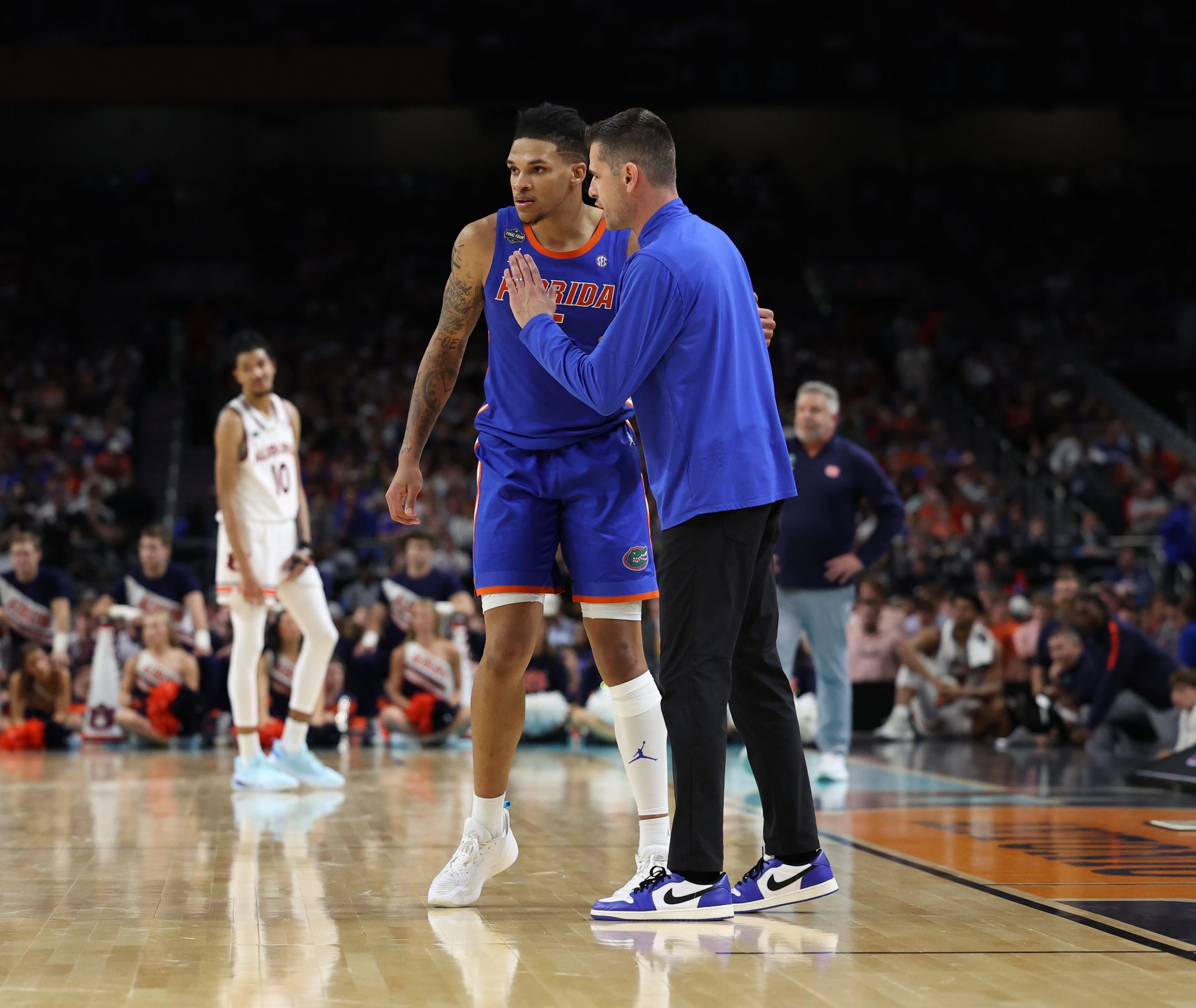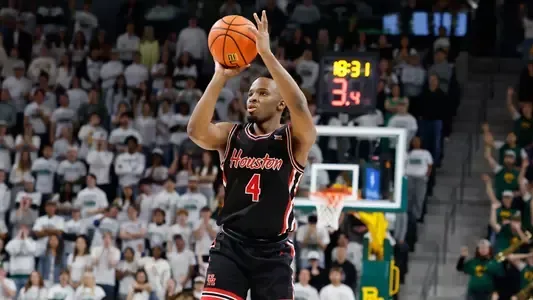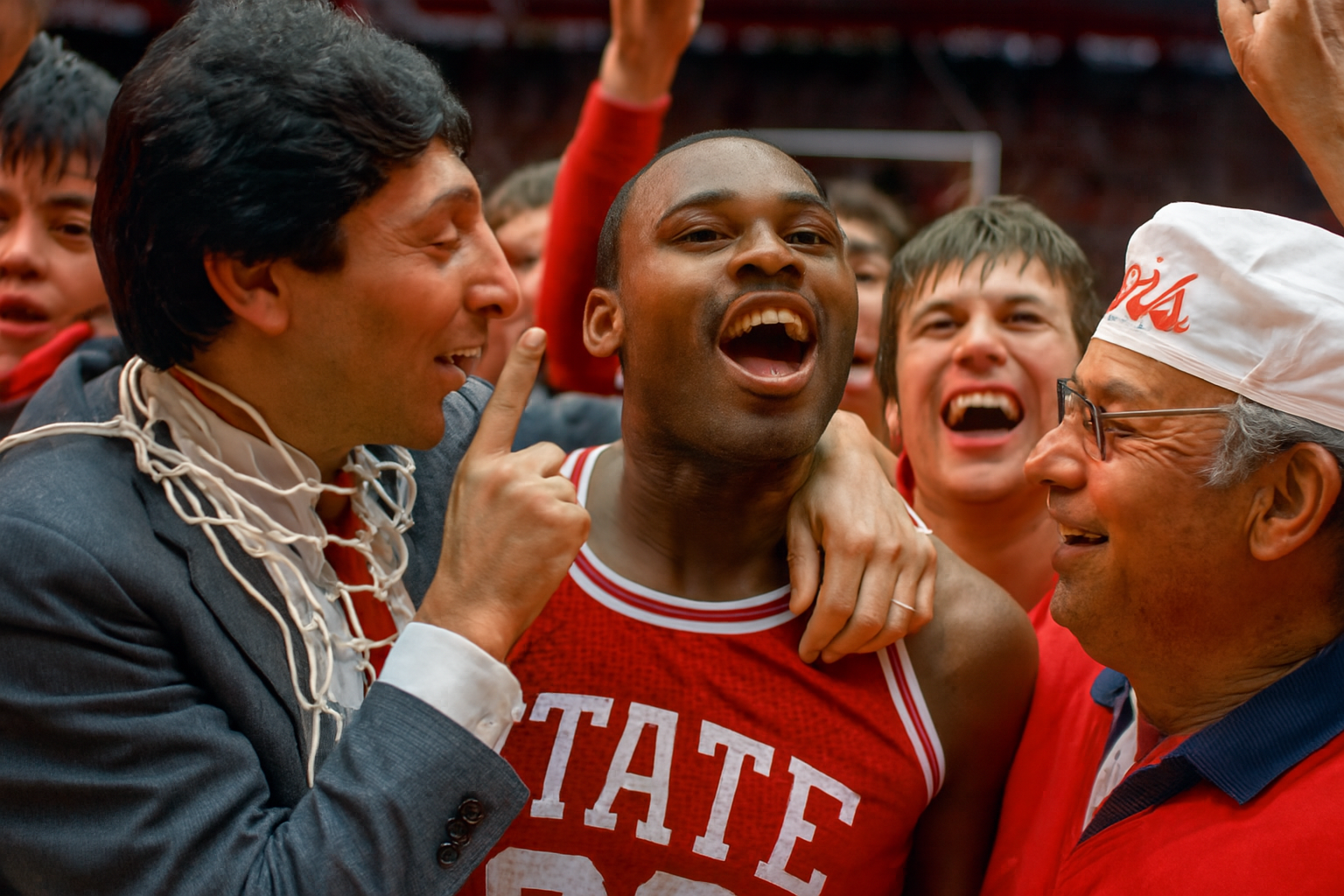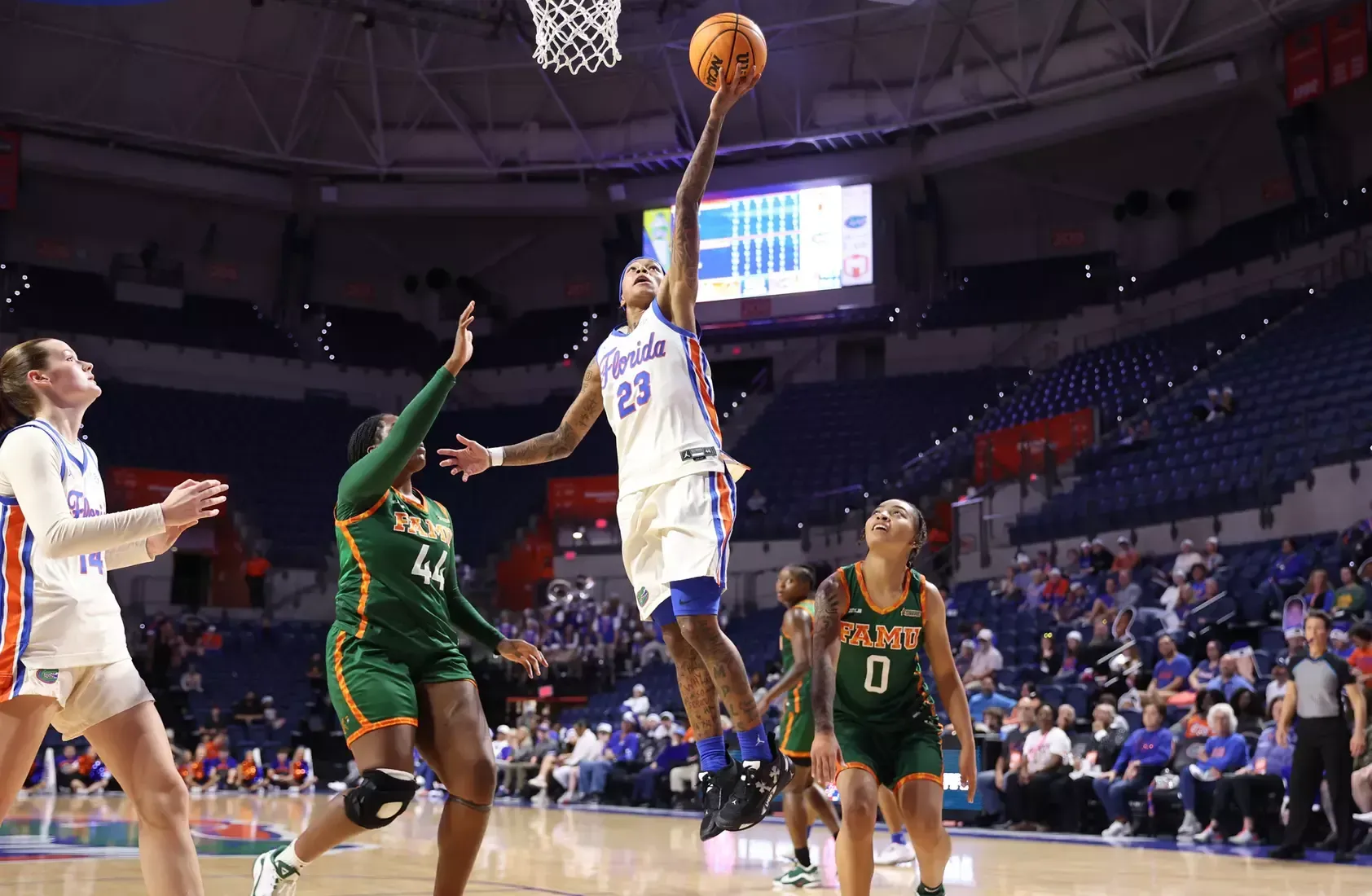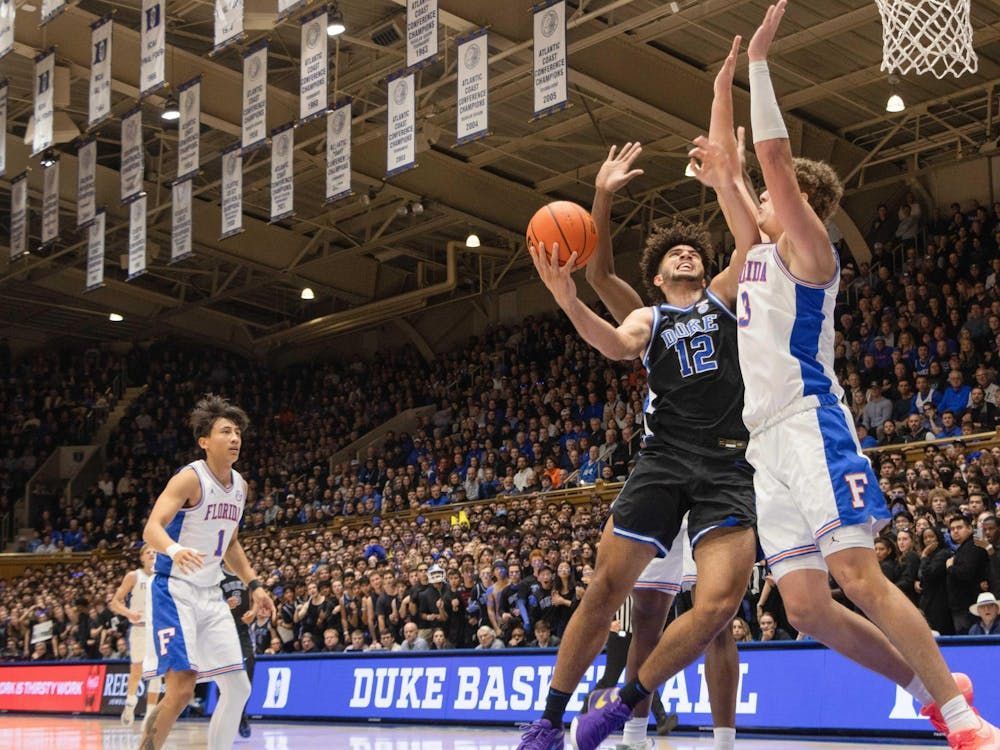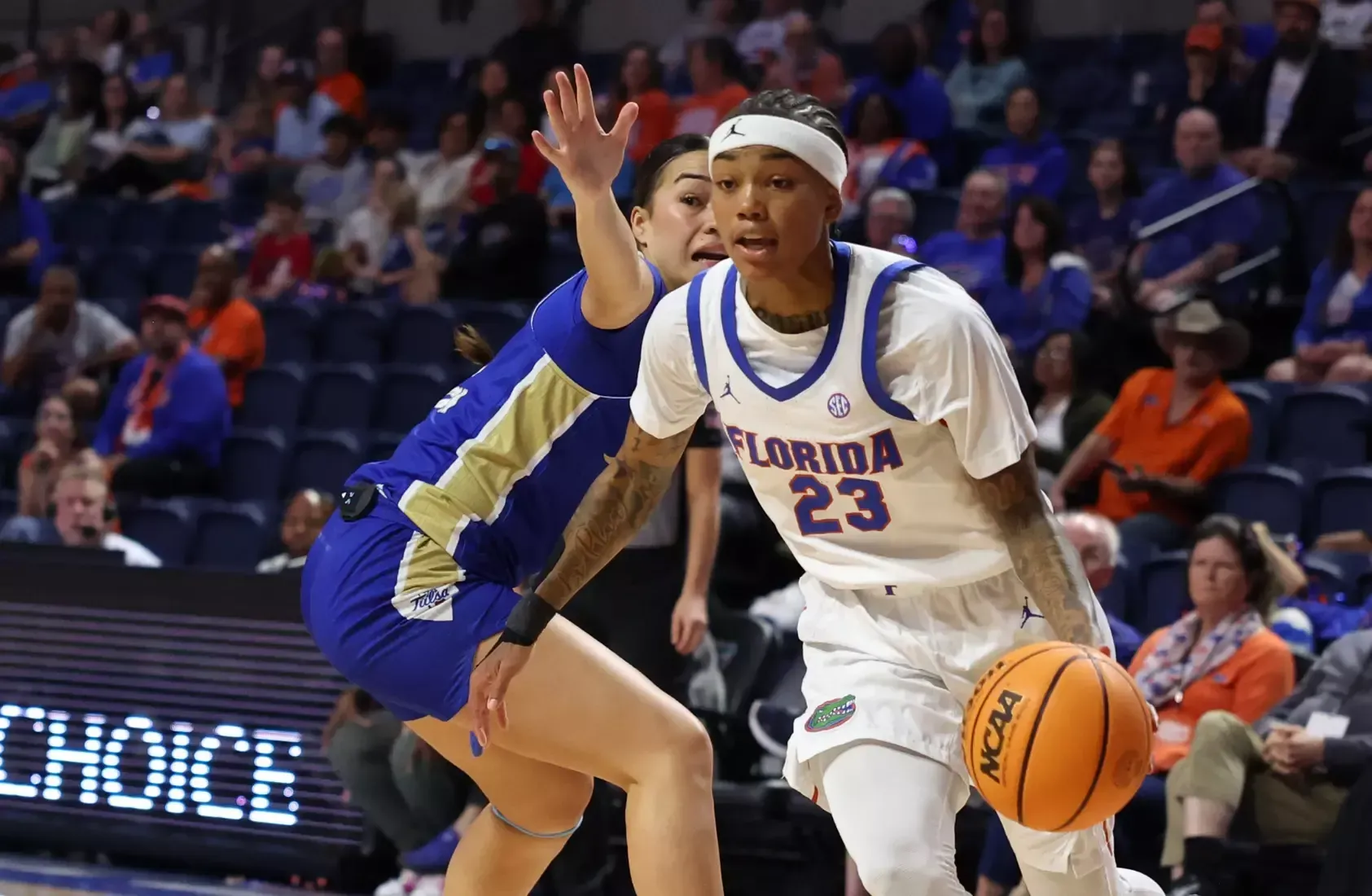Projected Starters
The Alamodome, which had 68,000 for Saturday's semifinal, is on the permanent Final Four rotation.
SETUP: The stage is set in San Antonio as Florida, the No. 1 seed from the West Region, takes on Houston, the No. 1 seed from the Midwest, in Monday night’s NCAA championship game. The third-ranked Gators earned their spot by rallying from a nine-point second-half deficit to defeat No. 2 Auburn, 79–73, in Saturday’s first semifinal. The Cougars, champions of both the Big 12 regular season and tournament, pulled off an even more dramatic comeback later that night—erasing a nine-point hole with just 1:31 left to stun top-ranked Duke, 70–67.
For UF, this marks the program’s fourth appearance in a national title game and its first since capturing back-to-back championships in 2006 and 2007. UH, meanwhile, returns to the final for the first time since consecutive trips in 1983 and 1984, when they fell to North Carolina State and Georgetown.
SERIES: Houston holds a 2–0 advantage in the all-time series. The Cougars edged the Gators 61–60 in Gainesville’s Alligator Alley on Dec. 7, 1970, and followed with a 97–73 home win at the Summitt on Dec. 8, 1973.
ETC: Combined, the two programs have made 14 Final Four appearances—six for Florida and eight for Houston.
Tale of the Tape
The Gators
The Florida Gators are just one victory away from matching the program’s single-season wins record, set by the 2013–14 squad that finished 36–3 with a 30-game winning streak before falling to Connecticut in the national semifinal. This year’s team has strung together 11 straight wins and 17 of its last 18, with the only setback in that stretch being an 88–83 loss at Georgia on Feb. 25.
Against Auburn in the Final Four, Florida overcame a sluggish first half in which they trailed by eight. After the break, the Gators flipped the script—shooting 50% from the field and bringing a level of physicality that had been missing early. Defensively, they limited the Tigers to just 8-for-24 shooting in the second half, including only five makes inside the arc, after conceding 13 such baskets before halftime. Florida outscored Auburn 41–27 in the period to secure the win. Still, as they prepare for Houston, the margin for error shrinks. Falling behind by eight against the Cougars’ elite defense and relentless rebounding would be far more punishing.
Head coach
Todd Golden, now 75–33 in three seasons at UF, is aiming to become just the seventh coach in NCAA history to capture a national championship before turning 40.
At the center of Florida’s postseason surge is
Walter Clayton Jr., who has been nothing short of spectacular. Through five NCAA Tournament games, he’s averaging 24.6 points while shooting 50% overall, 48.7% from three (19-for-39), and 90.4% at the free-throw line (38-for-42). Stretching back eight games, including the SEC Tournament where he earned MVP honors, Clayton’s averages remain elite: 23.1 points, 49.1% shooting, 49.2% from deep, and 88% from the stripe. His brilliance has carried the Gators, but Houston’s defensive schemes will focus on forcing the ball out of his hands.
Alijah Martin added to his NCAA Tournament résumé with his ninth career win in the event. After reaching the Final Four with Florida Atlantic in 2023, he’s now added five more victories in his graduate-transfer season at UF. His two highlight-reel dunks in the second half against Auburn were among the defining moments of the game, as he finished with 17 points, three rebounds, and a +10 plus/minus.
The third member of Florida’s senior guard trio,
Will Richard, had a quieter outing with seven points and six rebounds. Still, his three-point play early in the second half—when the Gators trailed by nine—ignited an 11–0 run that shifted momentum. Backup guard
Denzel Aberdeen contributed two points in 15 minutes, though turnovers limited his impact as Florida tightened its rotation.
Inside, Florida’s four-man frontcourt rotation received a stern halftime message from Golden and associate head coach
Carlin Hartman after a lackluster opening 20 minutes. The group responded.
Rueben Chinyelu anchored the defense with nine rebounds, the most in the game.
Alex Condon, despite scoring just one point on 0-for-5 shooting with three turnovers, improved defensively after halftime.
Thomas Haugh chipped in 12 points, six rebounds, and three blocks, while 7-foot-1
Micah Handlogten provided valuable minutes off the bench.
The Cougars
The Houston Cougars opened the season with some early stumbles, dropping three of their first seven contests. Those defeats came against Auburn at Houston’s NBA arena, and in overtime matchups with Alabama and San Diego State during a Thanksgiving tournament in Las Vegas. After that stretch, Houston went on a tear, losing only once more—a home overtime setback to Texas Tech on Feb. 1. Since then, the Cougars have rattled off 18 straight victories, the longest active streak in the nation, powered by a defense unlike anything the Florida Gators have faced, even in the grind of the SEC.
Head coach
Kelvin Sampson, now in his 11th season at UH, has rebuilt the program after earlier career setbacks tied to NCAA violations and academic issues that ended his tenures at Oklahoma and Indiana. At 69 years old, Sampson is aiming to become the oldest coach to ever capture a national championship. Over his 36-year career, which began with stops at Montana Tech and Washington State, he has amassed 798 wins, including a 298–83 record with the Cougars.
Statistically, Houston’s defense is elite. They rank third nationally in effective field-goal percentage allowed (44.8%), fifth in two-point defense (44.3%), 17th in three-point defense (30.3%), and fifth in blocked shots (15.7%).
On offense, the Cougars shoot 48% inside the arc, but their real strength lies on the glass. They rank 10th in offensive rebounding (37%), which often creates second-chance looks and open threes. From deep, they are the No. 1 team in the country, converting at a blistering 39.9%. Their style is deliberate—they play at one of the slowest tempos in Division I (slower than all but five teams) and rarely turn the ball over (14.2% turnover rate, 20th nationally). That efficiency ensures they almost always generate a quality shot or a second opportunity.
Only four opponents managed to score 70 or more points in regulation against Houston this season. Most recently, they held Duke, the nation’s top-rated offense, to just 39.6% shooting overall, including 38.9% inside the arc.
NC State coach Jim Valvano (left) and guard Dereck Whittenburg (center) celebrate the Wolfpack's buzzer-beating defeat of Houston in the 1983 NCAA championship game.
- :00 — The iconic moment in the
1983 NCAA championship game when
North Carolina State’s Lorenzo Charles grabbed
Dereck Whittenberg’s missed shot and dunked it at the buzzer, sealing a 54–52 upset over top-ranked
Houston in Albuquerque, New Mexico.
- 1 — The number of games
Houston has lost since early December. The Cougars have won 31 of their last 32 contests.
- 8 — Comebacks by
Florida this season after trailing by at least nine points, including Saturday’s win over
Auburn. Other rallies came against
South Florida (13),
Wake Forest (9),
Virginia (9),
Arkansas (9),
South Carolina (14),
Auburn (10), and
Texas Tech (10) in the
Elite Eight.
- 702 — Career points scored by
Walter Clayton Jr. at Florida, setting a new program record by surpassing the 676 points scored by
Andy Owens in the 1969–70 season. Of Clayton’s total, 123 points (also a UF record) have come in the
NCAA Tournament, accounting for 17.7% of his season scoring.
- 2000 — The year
Florida first appeared in a national championship game. On April 3 at the
Hoosier Dome in Indianapolis, the Gators fell 89–76 to
Michigan State, the No. 1 seed and second-ranked team in the nation. The
Spartans, led by
Morris Peterson (21 points) and tournament MVP
Mateen Cleaves (18 points, 4 assists), claimed their first NCAA crown since the
Magic Johnson-led squad of 1979. Florida’s standout was sophomore center
Udonis Haslem, who posted a career-high 27 points.
Bottom Line
Come what may, what a season.
Email Chris Harry at chrish@gators.ufl.edu
